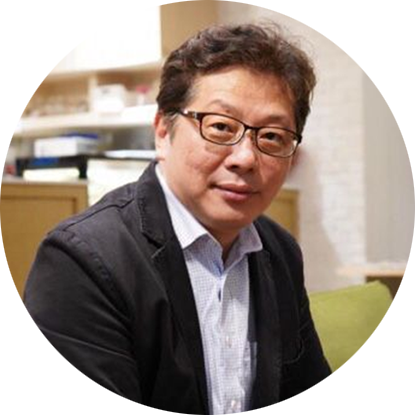Estimation of the compositional changes to the Politburo Standing Committee of the 20th Party Congress
2023.04.10
Views
440
PDF link:
If Chinese President Xi Jinping wins the third term on October 16, 2022, unprecedented in the history of the Chinese Communist Party, he will become the most authoritative leader since Mao Zedong, abolishing the group-leading limitations set by previous presidents such as Hu Jintao and Jiang Zemi. In that case, it will be the turning point of the CCP regime.
But before the 20th Party Congress opens, some estimation principles are worth examining.
1. Do anti-Xi forces really exist within the CCP?
If anti-Xi forces still exist, the CCP probably hasn’t decided on the Politburo Standing Committee members of the 20th Party Congress, or only come up with some possible candidates. If anti-Xi forces don’t exist, Xi Jinping can choose whoever he likes, and the new member list won’t change much. In other words, the list is probably decided.
At the 18th and 19th Party Congress, international media such as Reuters and South China Morning Post were fed the news and the list was published very early on. Usually, the news is not far from reality, which shows the leaders of the CCP have a consensus and are united.
If anti-Xi forces exist, now they are under the supervision of Xi, and they can’t join forces effectively. They can only take action and vote on important gatherings and meetings. During this process, there should be three chances to influence the 20th Party Congress: The Beidaihe Meeting, the 7th Plenary Session of the Central Committee of the CCP, and the 20th Party Congress.
The Beidaihe Meeting ended in the summer. We are not sure if there was a veto or resolution, but from the current situation, the resolution is either non-existent or not followed. Simply put, the Beidaihe Meeting provided a chance for different cliques of the CCP to exchange opinions and reach a consensus. Be it through Song Ping[1] or Li Keqiang[2], creating public opinion at a specific time serves a certain political purpose.
Anyhow, if anti-Xi forces exist, will they take action at the 20th Party Congress? Now, we should look at the Presidium of the 20th Party Congress and see if the members on the list come from the main cliques. It can give us hints whether the members will take action or vote.
2. Can there be only five members of the Politburo Standing Committee instead of seven or nine?
When a CCP leader’s term is about to end, there is always all kinds of estimation and analysis about who will be on the list of the Politburo Standing Committee and the trend of the cliques.[3] But the weird thing with the 20th Party Congress is that there is no such estimation. Usually, the news should be everywhere six to three months before the Party Congress opens, but this year, the media is disturbingly quiet.
But an estimation of the size of the Politburo Standing Committee appeared on the internet and social media: the small one versus the big one.[4]
If the size of the Politburo Standing Committee remains at seven people or expanded to nine people, we can understand it as, on the one hand, Xi is willing to share power with other cliques, but it is more likely he wants to play Yuan Shikai, occupying the high ground. If we look at the beginning of the Republic of China, the Zhili Clique and Anhui Clique clashed with each other, but none of them could challenge Yuan Shikai.
If the size of the Politburo Standing Committee shrinks, it will become a centralized battle group. There can be two interpretations: on the surface, Xi’s grip on power is tight, and he can do whatever he pleases, but on the other hand, CCP leaders could be compromising. By creating exceptions, Xi can achieve special tasks, what previous CCP leaders wanted but dared not to do, such as invading Taiwan by force. In other words, a Standing Committee of the Political Bureau of five is an exception. If Xi doesn’t accomplish the tasks, he won’t have the chance to serve another term at the 21st Party Congress.
A list of seven or nine members allows plenty of opportunities for pork barrel and clique fights. But for the list of five members, the estimated and leaked version is Xi Jinping, Wang Yang, Li Keqiang, Ding Xuexiang, and Hu Chunhua. Only the following roles remain in the Standing Committee: General Secretary, Premier, Secretary of the National People’s Congress, Secretary of the Chinese People’s Political Consultative Conference (CPPCC), and the Secretary of the Secretariat. Xi and Ding play the dominant role, Wang and Li supervise, and Hu learns.
Back to the issue of invading Taiwan by force, the question is, will the war break out? After U.S. House Speaker Pelosi visited Taiwan, despite the China-US confrontation, for Beijing, invading Taiwan means war with the U.S. With the help of the U.S. and NATO, the Russia-Ukraine war is still going on. Even in 2027, does the Chinese liberation army have the confidence to beat the Taiwanese Army with the help of the U.S. Army?
The most rational and pragmatic assumption from the Politburo Standing Committee is to maintain the status quo. However, we cannot rule out the possibility of a change in the size of the Standing Committee due to the build-up of “anti-Xi forces.”
(Originally published in the “National Defense and Security Real - time Assessment”, October 12, 2022, by the Institute for National Defense and Security Research.)
(The contents and views in the assessments are the personal opinions of the author, and do not represent the position of the Institute for National Defense and Security Research.)
[1] 105-year-old Song Ping makes a rare appearance in support of reforms, saying it’s “the road of development that China must take”, Ming Pao Daily News, September 20, 2022, https://reurl.cc/m313Nj.
[2] Li Keqiang’s urgent call for “reform and opening up” triggers a buzz, Radio Free Asia, October 3, 2022, https://www.rfa.org/mandarin/yataibaodao/zhengzhi/gt2-10032022071316.html.
[3] Such as “Decoding the 20th Party Congress,” Asia Society, October 2022, https://asiasociety.org/policy-institute/decoding-chinas-20th-party-congress.
[4] I would like to express my gratitude for the discussion with the Associate Researcher of the National Security Institute, Dr. Che-Chuan Lee, on the size change of the standing committees.


